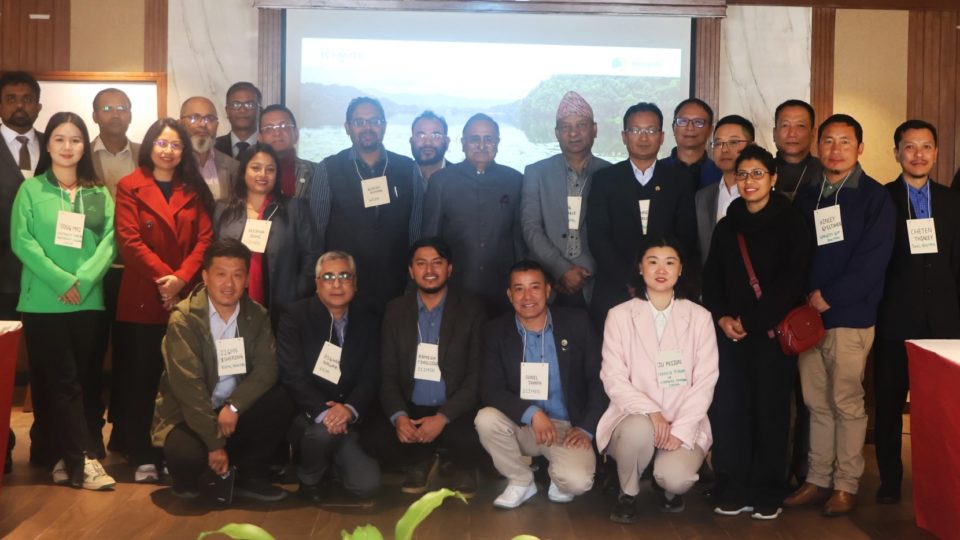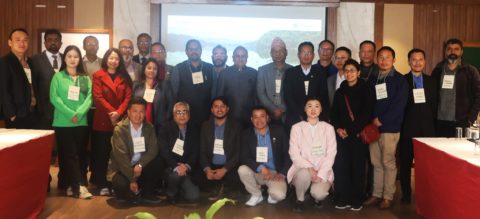
(Participants in the Roundtable meeting held in Pokhara, Nepal, from 13-15 December 2023 )
Wetlands International South Asia (WISA) joined hands with the International Centre for Integrated Mountain Development (ICIMOD), Nepal, to bring together Ramsar Wetlands National Focal Point representatives from South Asia countries to develop modalities for the operation of the Regional Platform for Wetlands Conservation and Wise Use. The Roundtable meeting was held in Pokhara, Nepal, from 13-15 December 2023 and was attended by representatives from Bangladesh, Bhutan, India, Nepal and Sri Lanka.
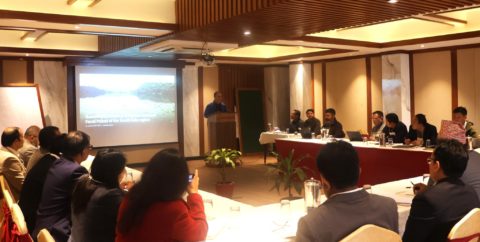
{Welcome address by Dr Yi Shaoliang (Manager-Rangeland Intervention, ICIMOD)}
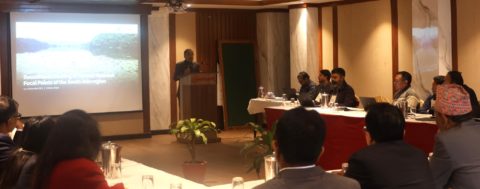
{Keynote address-I by Dr Sidharth Kaul (President, Wetlands International South Asia)}
Four roundtables on Regional Platform vision and mission, objectives, governance and collaboration framework and action plan were held. These were chaired by Mr Shiva Kumar Wagle (Ramsar National Focal Point/Director General of the Department of Forests and Soil Conservation, MoEFCC-Nepal); Dr Manjula Amararathna (Ramsar National Focal Point/Director, Department of Wildlife Conservation, Sri Lanka); Mr Cheten Thinley (Department of Water Ministry of Energy and Natural Resources, Bhutan); Dr Santosh Kumar (Scientist E-Zoological Survey of India, MoEFCC-India); and Mr Imran Ahmed (Conservator of Forests, Wildlife & Nature Conservation Circle, Bangladesh Forest Department, Bangladesh).
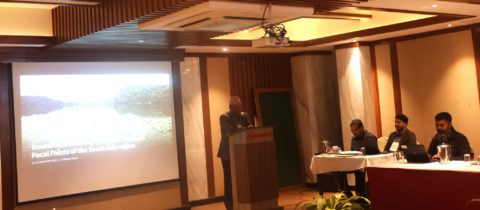
{Keynote address-II by Mr Shiva Kumar Wagle (Ramsar National Focal Point/Director General of the Department of Forests and Soil Conservation, MoEFCC-Nepal)}
The participants adopted the Regional Initiative Proposal, and it was recommended to be endorsed by the member countries for administrative approval.
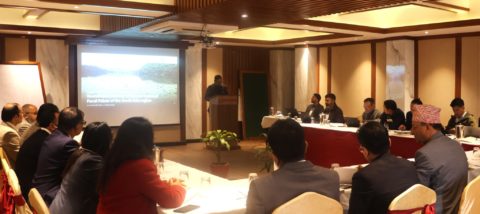
{Introduction to South Asia Regional Platform and Workshop structure and roundtable sessions by Dr Ritesh Kumar (Director, Wetlands International South Asia)}
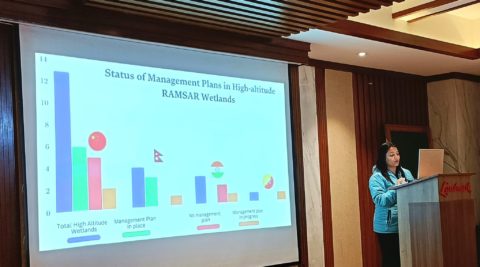
{Introduction to the session on Conservation of Wetlands in the Hindu Kush Himalayas by Dr Srijana Joshi Rijal (Ecosystem Specialist, ICIMOD)}
Key recommendations that emerged from the discussions:
- The rationale for regional collaboration encompasses essentially the urgency to halt the decline of the wetland ecosystems and the need to scale up action on wetlands conservation and wise use by sharing national and regional experiences of South Asian Countries.
- The vision for the Regional Platform was specified as – A well-conserved and effectively managed wetland network as a contribution to sustainable development in the South Asia region.
- The mission for the Regional Platform was stated as – Support all stakeholders in inclusive and integrated wetland management through international cooperation, networking, knowledge development and exchange of best practices, funding support and capacity development.
- The objectives set out emphasized supporting the implementation of Ramsar Convention commitments and Strategic Plans; Enhance regional coordination, cooperation and networking in South Asia; Build capacity of stakeholders to design and implement wetland conservation and management programmes and to operate a Wetlands Fund to support implementation of strategic priorities for the conservation and wise use of wetlands in South Asia region.
- The geographic coverage of the Regional Platform will include the present Ramsar Convention Contracting Parties in South Asia and as well as the new countries as they become members of the Ramsar Convention.
- A three-tier Governance Framework for the Regional Platform was adopted. The Steering Committee to include the Ramsar National Focal Points as the nodal authority and which meets at least once a year. An Advisory Committee exclusively for South Asia to be constituted, the committee to recommend topics and issues for the development of the work programme of the Regional Initiative. An Executive Committee to appoint thematic leads and to oversee fund raising for programme implementation.
- The South Asia Regional Platform would collaborate with different national and international organisations through a Memorandum of Understanding, Technical Cooperation, and Funded Projects approved by the Steering Committee.
- Resource mobilization efforts will largely be directed at capacity development, creating a Small Grants Fund to support wetland action, developing strategic knowledge products, joint technology development and regional monitoring programmes.
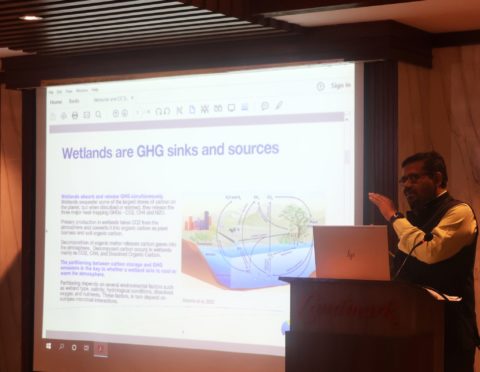
{Presentation on mapping Peatlands in the Hindu Kush Himalayas by Dr Ritesh Kumar (Director, Wetlands International South Asia)}
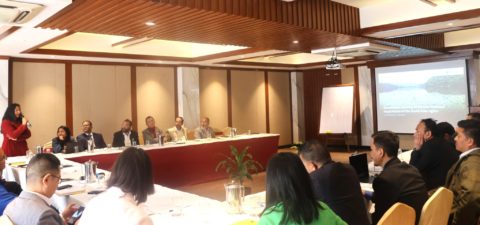
(Participants interacting during the roundtable session)

